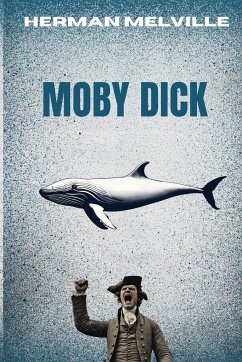"Moby-Dick" by Herman Melville, a literary masterpiece published in 1851, plunges readers into the turbulent seas of obsession, revenge, and the eternal struggle between man and the enigmatic forces of nature. Set against the backdrop of the 19th-century whaling industry, the narrative follows the intrepid Captain Ahab on his relentless quest for the elusive white whale, Moby Dick, which transforms into a metaphorical voyage into the depths of the human soul.At its core, "Moby-Dick" is a masterful exploration of the intricacies of human nature. Captain Ahab, consumed by a fervent desire for vengeance, becomes an archetypal figure symbolizing the relentless pursuit of one's destiny. The narrative is a rich tapestry interweaving adventure, philosophy, and psychological insight, providing readers with a profound examination of the human condition.Melville's prose orchestrates a symphony of language, with each chapter serving as a literary voyage into uncharted waters. Employing a kaleidoscope of styles, from poetic and philosophical reflections to dramatic and suspenseful storytelling, Melville creates a multi-layered narrative challenging readers to navigate intricate currents of symbolism, allegory, and metaphor.The Pequod, Ahab's whaling ship, functions as a microcosm of society, showcasing a diverse crew from around the globe. Melville's vividly drawn characters contribute to the overarching themes of fate, free will, and the inexorable march of time. From the harpoon-wielding Queequeg to the thoughtful and observant Ishmael, the crew members represent both archetypal and deeply human facets of the human experience.The white whale, Moby Dick, emerges as a mythical antagonist embodying the capricious and awe-inspiring power of nature. Moby Dick transcends mere physicality, becoming a symbolic force challenging humanity's understanding of the universe. As Ahab's nemesis, the whale serves as a mirror reflecting the inner turmoil of the characters and a metaphor for the vast, indifferent cosmos.Melville's narrative structure is ambitious and innovative, with diversions into whaling practices, marine biology, and a play within the novel. These digressions enrich the reading experience, providing a holistic view of the world Melville sought to depict.As the Pequod sails through the vast ocean, readers embark on a sensory journey. Melville's descriptive prowess captures the beauty, terror, and sublime majesty of the sea. Whether detailing whale anatomy or immersing the reader in the rhythmic ebb and flow of the ocean, Melville's vivid descriptions transcend the written word."Moby-Dick" serves as a testament to Melville's philosophical depth and literary ingenuity.
